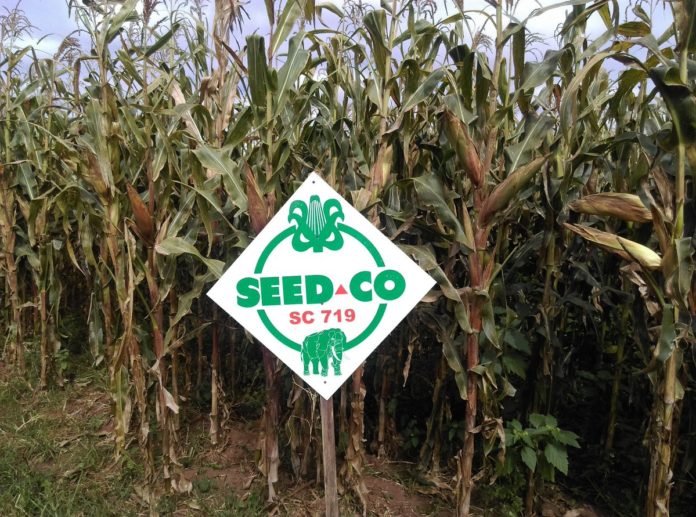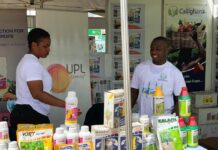The SC719, Gyemedi in the local dialect is a high-yielding hybrid maize variety with drought-tolerant and stretch needs developed and imported by Seed Co West and Central Africa to alleviate the menace of food security in Ghana.
Maize is one of the staple foods in Ghana and its shortage coupling with price hikes is a critical issue to food security in the country, but with the farmers’ field day event of SC719 under 135 hectares observed at the Volta Region near Juapong indicates that there is hope to alleviating maize shortage in Ghana.
The objective of the SC719 farmers’ field day is to allow farmers to share knowledge and encourage the farmers to share information in order to have as many farmers as possible to improve productivity in Ghana. Having fertile land, and good agricultural practices, the variety of seed is a critical element to consider of which without good seed all effort is proven futile.
“When you look into our catalogues of crop varieties that we have released in Ghana, we have other hybrid seeds that farmers have the option to choose, but the most important thing that I have learned from this field visit is the best practices”, Dr. Solomon Ansah, the Deputy Director of Crop Service Directorate, Ministry of Food and Agriculture said.
According to Dr. Solomon, every seed goes with its own best practices therefore, it is very crucial that farmers comply with the good agricultural practices with regards to a particular kind of seed there are patronizing.
He urged the farm manager to document all the good agricultural practices that were involved in making the SC719 Seed Co seed a flourishing for other commercial farmers to emulate.
Wikus Venter, the Farm Manager said it is achievable for them to harvest 10 metric tons plus per hector of land by using Seed Co SC719 in Ghana. Seed Co seeds are reliable, their germination percentage is 99.5%, they have been treated with Syngenta products and the Seed Co agronomists visit the fields almost every two weeks during the production period making it the first option to choose.
“Seed Co seed we have planted is very strong against wind, there is no problem when the wind is blowing. Normally, the other varieties keep falling down when the wind blows but SC719 does not fall”, he uttered.
Wikus appealed to the Seed Co West and Central Africa to make availability and accessibility of the seed for other commercial farmers to patronize.
“For other farmers, I think the best way is to be close to Seed Co because they have a lot of resources; soil sampling, the type of agrochemical to use, and they have knowledge of growing maize to get the best yield per hector”, he added
To achieve maximum yield to feed Ghanaians, seed care is very crucial. “We believe that to make seed industry booming in Ghana, seed care is very important and we are coming out with additional foliar applications to control the Fall of Armyworms to aid in maximizing the yields potentials of our farmers and make sure that Ghana is a pedestal of feeding Africa”, Kingsley Adade, Country Manager of Syngenta Ghana explained.
Sharing information between and among commercial farmers on options and rightful means of achieving maximum productivity is very key to the development of Ghana’s agriculture, hence, the essence of the SC719 hue field demonstration.
Dr. Takemore Chagomoka, the Regional Manager of Seed Co West and Central Africa said it is very imperative to allow farmers to share knowledge and information to motivate commercial farmers in Ghana to improve productivity to solve food security issues in the country.
He explained that Seed Co West and Central Africa is determined to set up seed manufacturing in Ghana to produce seeds locally.
He called for more farmers and stakeholders’ participation to assist in addressing the maize shortage in the country by patronizing the reliable realistic maize variety SC719.








